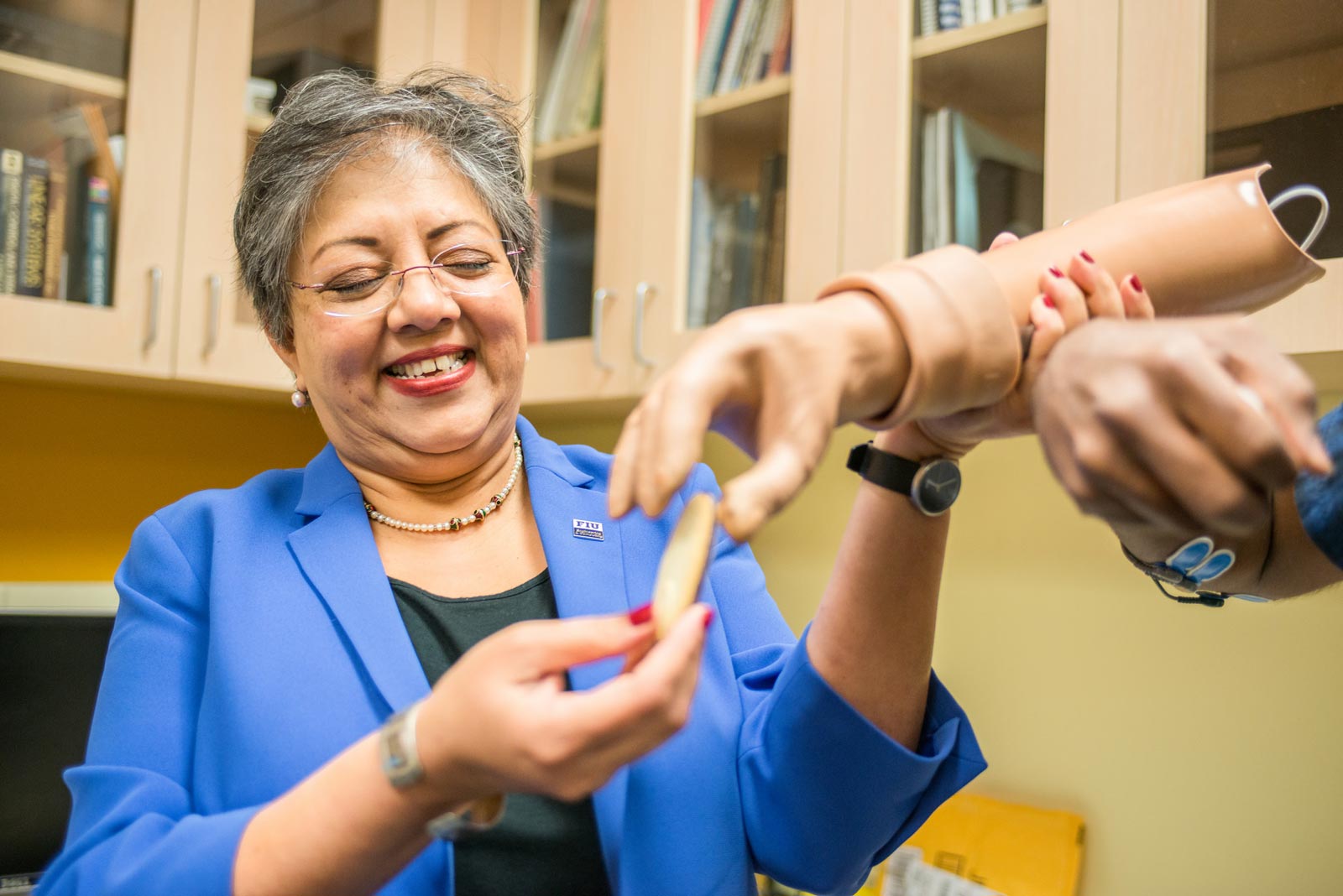 Ranu Jung, professor and chair of the Department of Biomedical Engineering and the Wallace H. Coulter Eminent Scholars Chair in Biomedical Engineering, has been named a Fellow by the Biomedical Engineering Society (BMES).
Ranu Jung, professor and chair of the Department of Biomedical Engineering and the Wallace H. Coulter Eminent Scholars Chair in Biomedical Engineering, has been named a Fellow by the Biomedical Engineering Society (BMES).
The BMES is the professional society for biomedical engineering and bioengineering. Founded in early 1968, the Society now boasts over 7,500 members, with a mission of promoting and enhancing knowledge and education in biomedical engineering and bioengineering worldwide and its utilization for human health and well-being.
Fellows have demonstrated exceptional achievements and have made significant contributions within the biomedical engineering field. They also have extensive leadership within the field but have also served within the Society.
I was honored when I heard the news, says Jung. It is very gratifying to have this recognition by peers in my field. I value their opinion and what they have to say. I have been privileged to learn a lot about different things spanning education to administration from them.
Jung’s contributions to her field include her notable research projects. She developed a pioneering neural-enabled prosthetic hand (NEPH) investigational device system with her Adaptive Neural Systems Laboratory team, which restores a sense of touch/grasp force and hand opening by stimulating sensory nerve fibers in the residual limb with fine wires implanted inside nerves, allowing amputees to “feel” again.
Last fall, she was awarded $6 million by the Department of Defense to expand feasibility testing of the system to military veterans and other amputees.
Jung also believes in the importance of training and mentorship of future biomedical engineers, and works with a wide spectrum of high-achieving scientists, postdocs, graduate students, undergraduate students, and high school students. For example, the Biomedical Engineering Department partners with the FIU Summer Research Internship program and offers research internships to high school students to engage in BME study. One of the students from the summer 2019 cohort returned to the lab this summer for his second virtual internship, and another was accepted to FIU and has joined the Biomedical Engineering Department as a freshman. The department’s competitive Coulter Undergraduate Research Excellence Program helps students hone their research, critical thinking, and communication skill sets. Anil Thota, a biomedical engineering PhD student and FIU Adaptive Neural System lab research scientist, recently won first place in the FIU ATOM COVID-19 Datathon, a competition to develop technology-driven solutions for repopulating the campus.
Jung feels privileged to be able to provide service in her field. She serves on the National Advisory Council for Biomedical Imaging and Bioengineering of the National Institutes of Health, has reviewed graduate degree programs at schools like Johns Hopkins, Penn State and Clemson, and recently gave a fireside chat to the American Institute for Medical and Biological Engineering Academic Council on how FIU is promoting diversity and increasing representation.
Jung is also a co-PI on FIU ADVANCE, a five-year, $3.2 million Institutional Transformation grant awarded in 2016 by the National Science Foundation for FIU to develop innovative organizational change strategies to produce comprehensive change across all STEM disciplines.
Biomedical engineering, according to Jung, is about engineering the future of health for humanity. To do research and education in a field that is changing the lives of people, is an outstanding and unique opportunity in life.

